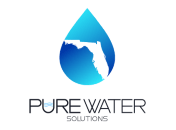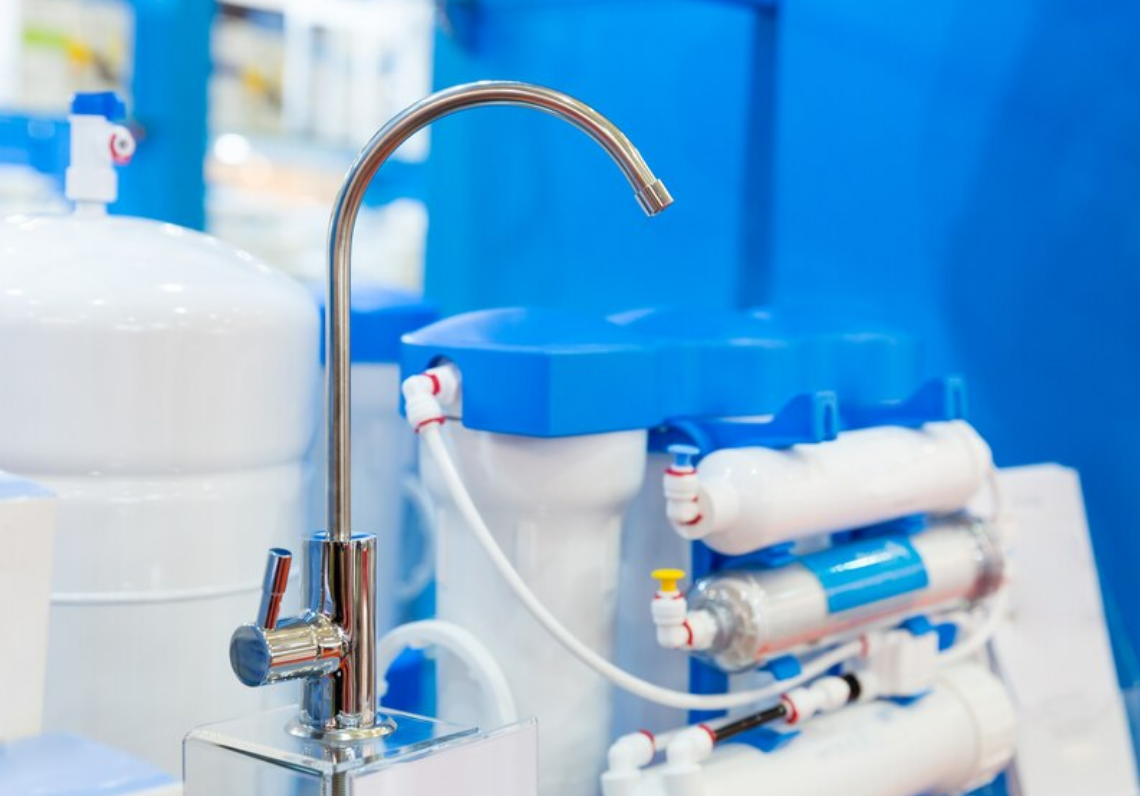976 Florida Central Parkway Suite 136 Longwood, FL 32750 • 407 605 3803
SE HABLA ESPAÑOL
What is the Best Type of Water Filtration
What is the Best Type of Water Filtration
The best type of water filtration depends on your specific needs and budget. Reverse osmosis (RO) systems are popular for their thorough filtration process, removing a wide range of contaminants.
However, they may strip water of essential minerals, requiring remineralization. Alternatively, activated carbon filters effectively improve taste and odor by removing chlorine and other chemicals. It's crucial to consider your water source and quality before choosing a filtration system. Municipal water reports can provide valuable insights into potential contaminants and treatment methods, guiding your decision.
By understanding your water quality and filtration options, you can select the most suitable system for your home.
The Importance Of Water Filtration
Health Implications Of Unfiltered Water
Drinking unfiltered water can expose you to a range of health risks. Unfiltered water may contain harmful contaminants such as bacteria, viruses, heavy metals, and other impurities that can lead to waterborne diseases and long-term health issues.
Effects On Taste And Odor
Unfiltered water can have unpleasant tastes and odors due to the presence of chemicals like chlorine and organic compounds. These can affect the overall drinking experience and make the water less palatable, leading to a reluctance to consume an adequate amount of water.
Understanding Water Contaminants
Discovering the best type of water filtration is crucial for understanding water contaminants. Reverse osmosis (RO) can be a cost-effective and efficient option, complemented by a sediment pre-filter and activated carbon to eliminate impurities that RO alone cannot. It's important to have your water tested and refer to your local water authority's annual report for insights into your water treatment and potential contaminants.
Common Types Of Contaminants
Understanding water contaminants is crucial for choosing the best water filtration system. Common contaminants include bacteria, viruses, pesticides, heavy metals, and chemicals.
How Contaminants Affect Health
Contaminants in water can lead to various health issues such as gastrointestinal problems, reproductive issues, neurological disorders, and even certain types of cancer. Regular consumption of contaminated water can have severe health consequences. It is important to invest in a water filtration system that effectively removes these contaminants to ensure safe and clean drinking water for you and your family.
Types Of Water Filtration Systems
Choosing the best type of water filtration system can be challenging as each method has its own advantages and disadvantages. Reverse osmosis (RO) is a popular option that is cost-effective and often includes additional filters like sediment pre filters and activated carbon.
It's important to have your water tested and consult your water authority's annual report for information on water treatment and potential issues. Additionally, considering factors like the age of your home and the need for remineralization can help you make an informed decision.
Reverse Osmosis (ro) Systems
Reverse Osmosis (RO) systems are cost-effective and commonly used for water filtration. They typically include pre-filters like sediment filters and activated carbon filters to enhance efficiency.
Activated Carbon Filters
Activated carbon filters are effective in removing impurities and contaminants from water. They can help eliminate bacteria and improve taste and odor.
Ceramic Filters
Ceramic filters are known for their durability and efficiency in removing harmful particles from water. They are a reliable option for water filtration.
In the search for the best type of water filtration system, considering factors such as cost, effectiveness, and maintenance requirements is essential. Each type of system has its own unique advantages and it's important to choose the one that best suits your specific needs.
Comparing Filtration Methods
When it comes to water filtration, there are several methods available, each with its own advantages and disadvantages. In this section, we will compare three popular filtration methods: Reverse Osmosis (RO) systems, activated carbon filters, and ceramic filters.
Pros And Cons Of Ro Systems
Reverse Osmosis (RO) systems are widely used for water filtration due to their effectiveness in removing impurities. These systems work by forcing water through a semi-permeable membrane, which effectively removes contaminants such as bacteria, viruses, heavy metals, and dissolved solids. However, RO systems have their pros and cons:
Pros
Highly effective in removing a wide range of impurities
Can be expensive to install and maintain
Improves taste and odor of water
Cons
Wastes a significant amount of water during the filtration process
Provides clean and safe drinking water
Requires regular replacement of filters and membrane
Advantages Of Activated Carbon Filters
Activated carbon filters are another popular choice for water filtration. These filters are made from carbon materials that have been activated to create a large surface area, allowing them to effectively adsorb impurities. Here are some advantages of activated carbon filters:
- Removes chlorine, volatile organic compounds (VOCs), and other chemicals that affect taste and odor
- Improves the overall quality and clarity of water
- Does not require electricity to operate
- Relatively affordable compared to other filtration methods
Effectiveness Of Ceramic Filters
Ceramic filters are known for their reliability and long-lasting performance. These filters are made from porous ceramic material that traps contaminants while allowing clean water to pass through. Here are some key points about ceramic filters:
- Effectively removes bacteria, protozoa, and sediments from water
- Durable and can last for a long time with proper maintenance
- Easy to clean and maintain
- Does not require electricity or complex installation
It's important to note that no filtration method is perfect, and the best choice depends on your specific needs and water quality. Consider factors such as the type and level of contaminants in your water, cost, maintenance requirements, and personal preferences when selecting a water filtration system.
Mineral Retention In Filtration
Choosing the right water filtration system for your needs can be a daunting task, with various options available in the market. One important factor to consider is the retention of essential minerals during the filtration process. While some filtration systems may remove impurities effectively, they can also strip away beneficial minerals that are vital for our health.
Systems That Preserve Minerals
Fortunately, there are filtration systems available that are designed to preserve these essential minerals. These systems use advanced technologies that selectively remove harmful contaminants while retaining the beneficial minerals in the water. By doing so, they ensure that you receive clean, safe water without compromising on the mineral content that is essential for your well-being.
Impact Of Ro On Essential Minerals
Reverse osmosis (RO) is a popular filtration method known for its effectiveness in removing contaminants from water. However, it is important to note that RO systems can also eliminate essential minerals in the process. The semipermeable membrane used in RO filtration tends to filter out not only impurities but also minerals like calcium, magnesium, and potassium.
Although RO water is often considered pure and clean, it may lack the essential minerals that contribute to the taste and health benefits of drinking water. This is why many under sink RO systems come equipped with additional filters, such as sediment pre-filters and activated carbon filters, to enhance the taste and retain some minerals in the filtered water.
If you are considering an RO system, it is crucial to understand the impact it may have on the mineral content of your water. However, it's worth noting that you can easily remineralize RO water by adding mineral drops or using a remineralization cartridge specifically designed for RO systems. This way, you can enjoy the benefits of purified water while still maintaining the necessary mineral balance.
On the other hand, basic filters like activated carbon or sediment filters can also improve the taste of water without removing essential minerals. These filters effectively remove impurities and enhance the flavor, making them a suitable option if you are primarily concerned with taste and odor.
Selecting The Right Filtration For Your Home
When it comes to selecting the right water filtration system for your home, it's crucial to consider various factors to ensure that you choose the most suitable option. Analyzing water quality reports and assessing household water needs are essential steps in making an informed decision.
Analyzing Water Quality Reports
Before investing in a water filtration system, it's important to analyze the water quality reports provided by your local water authority. These reports offer valuable insights into the composition of your water, including any contaminants or impurities present. By understanding the specific issues with your water supply, you can tailor your filtration system to address these concerns effectively.
Assessing Household Water Needs
Every household has unique water needs, and it's essential to assess these requirements when selecting a filtration system. Consider factors such as the water usage patterns, the number of occupants, and any specific water quality preferences. By understanding your household's water needs, you can choose a filtration system that provides the right level of purification and meets your specific requirements.
Installation And Maintenance
Looking for the best type of water filtration? Each method has its pros and cons, but reverse osmosis (RO) is a popular and cost-effective option. It's important to have your water tested and consider additional filters, like sediment pre-filters and activated carbon, to remove any potential contaminants.
Filtration System Costs
When it comes to choosing the best type of water filtration system, one of the most important factors to consider is the cost. Filtration system costs can vary widely depending on the type of system you choose, as well as the initial investment and ongoing expenses associated with each type. In this section, we will take a closer look at the cost-effectiveness of different water filtration systems, comparing initial investments to ongoing expenses.
Initial Investment Vs. Ongoing Expenses
One of the first things to consider when evaluating the cost of a water filtration system is the initial investment. This includes the cost of purchasing and installing the system, as well as any additional costs associated with setup and maintenance. Some types of filtration systems, such as reverse osmosis systems, can be relatively expensive to install and maintain, while others, such as activated carbon filters, may be more affordable.
However, it's important to consider ongoing expenses as well. Some types of filtration systems require frequent filter replacements or other maintenance, which can add up over time. Others may have a higher initial cost but require less maintenance and replacement over the long term. When evaluating the cost-effectiveness of different water filtration systems, it's important to consider both the initial investment and ongoing expenses to determine which option will be the most cost-effective over time.
Comparing The Cost-effectiveness Of Systems
So which water filtration system is the most cost-effective? The answer will depend on a number of factors, including your budget, the specific contaminants you're trying to remove from your water, and your long-term maintenance and replacement needs. However, there are a few general things to keep in mind when comparing the cost-effectiveness of different water filtration systems:
- Activated carbon filters are generally more affordable than other types of filtration systems and require less maintenance over time.
- Reverse osmosis systems can be more expensive to install and maintain, but may be necessary if you're dealing with high levels of certain contaminants in your water.
- UV filters are relatively affordable and require minimal maintenance, but may not be as effective at removing certain contaminants as other types of filtration systems.
Ultimately, the best way to determine the cost-effectiveness of a water filtration system is to evaluate your specific needs and compare the costs and benefits of different options. By considering both the initial investment and ongoing expenses, you can choose a system that will provide the most effective and affordable filtration for your home or business.
Conclusion
When it comes to choosing the best type of water filtration system, there is no one-size-fits-all solution. Each method has its own pros and cons, and it ultimately depends on your specific needs and preferences. Reverse osmosis is a popular option, but it's important to remember that it's not an all-in-one solution and may require additional filters.
The best course of action is to have your water tested and research the options that are available to you. By doing so, you can make an informed decision and enjoy the benefits of clean, safe drinking water.
Frequently Asked Questions
Question : What Is The Most Effective Water Filtration?
Answer:The most effective water filtration method is Reverse Osmosis (RO), offering thorough purification and removal of contaminants.
Question : What Is The Healthiest Way To Filter Water?
Answer:The healthiest way to filter water is through a reverse osmosis system, which removes impurities effectively.
Question : Which Water Filter Removes Most Contaminants?
Answer:Activated carbon and reverse osmosis (RO) filters are effective at removing most contaminants from water. RO filters are great for comprehensive filtration, while activated carbon filters can remove a wide range of impurities. Both options provide clean, safe drinking water.
Question : Which Is The Most Useful Method Of Water Filtration?
Answer: The most useful method of water filtration is reverse osmosis (RO) due to its effectiveness in removing impurities and contaminants from water. It is also cost-effective and can be supplemented with additional filters for optimal results. Regular testing and replacing of filters are essential for maintaining water quality.





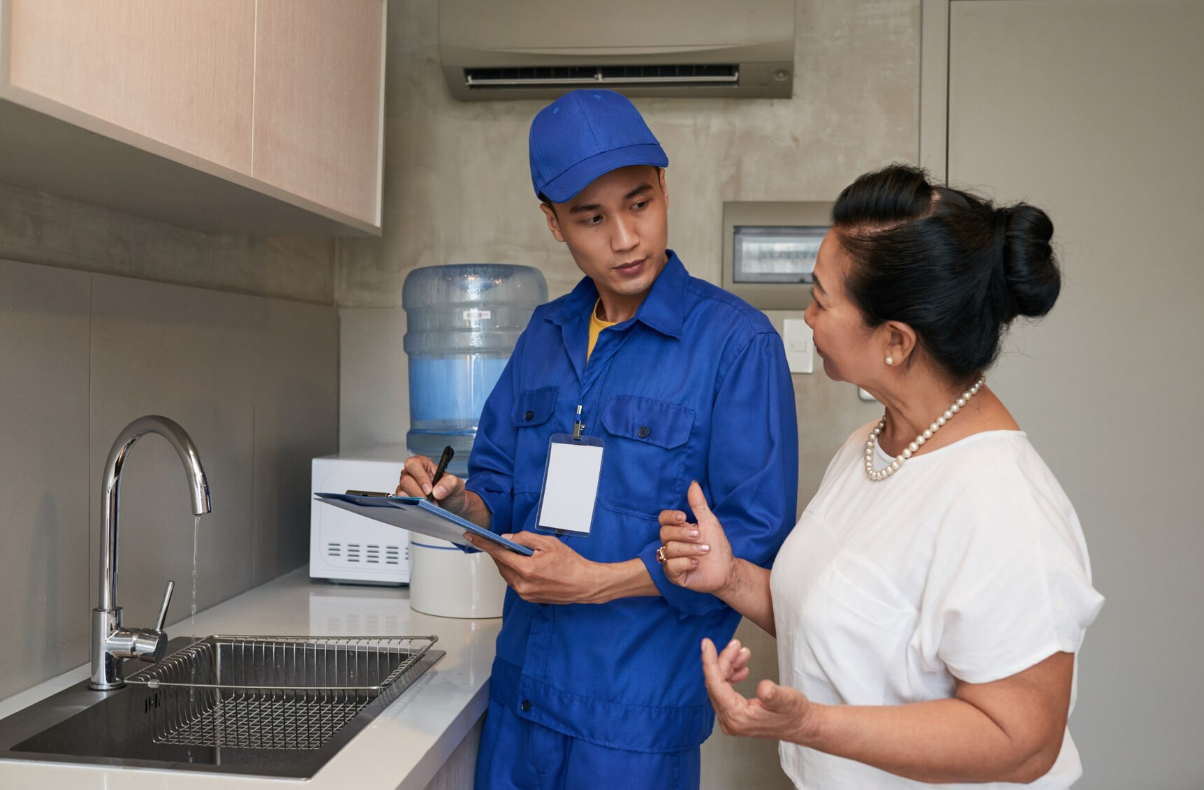
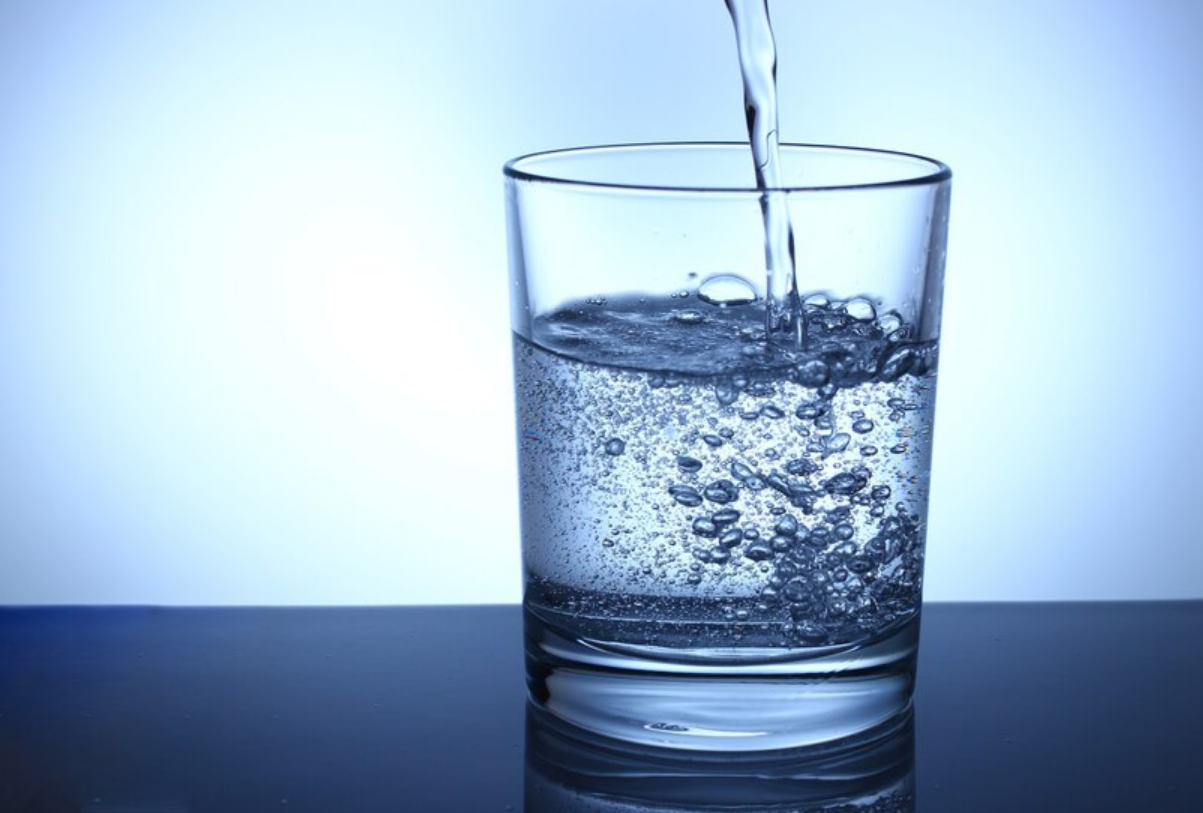

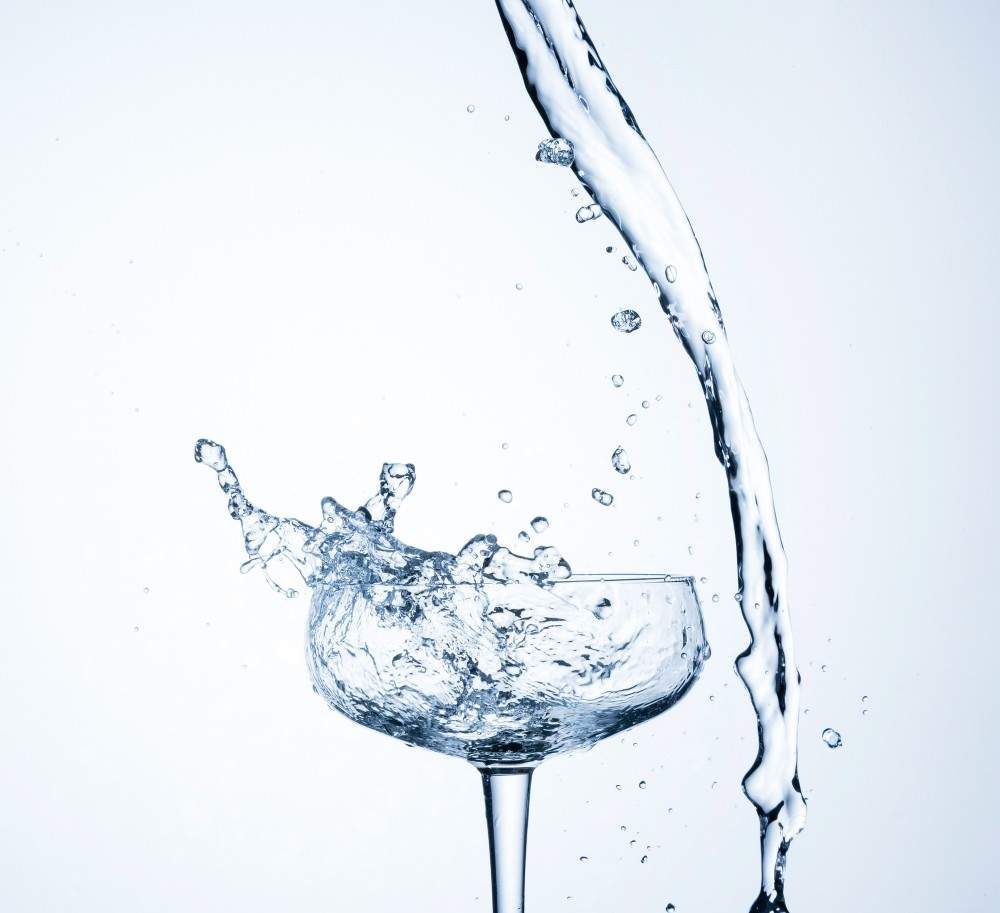
Contact Information
Phone: 407-605-3803
Email: info@flpureh2o.com
Address: 976 Florida Central Parkway Suite 136 Longwood, FL 32750
Payment Option





Financing Available
Our Location
Last updated 25 Oct 2023 by GTK
